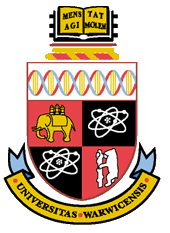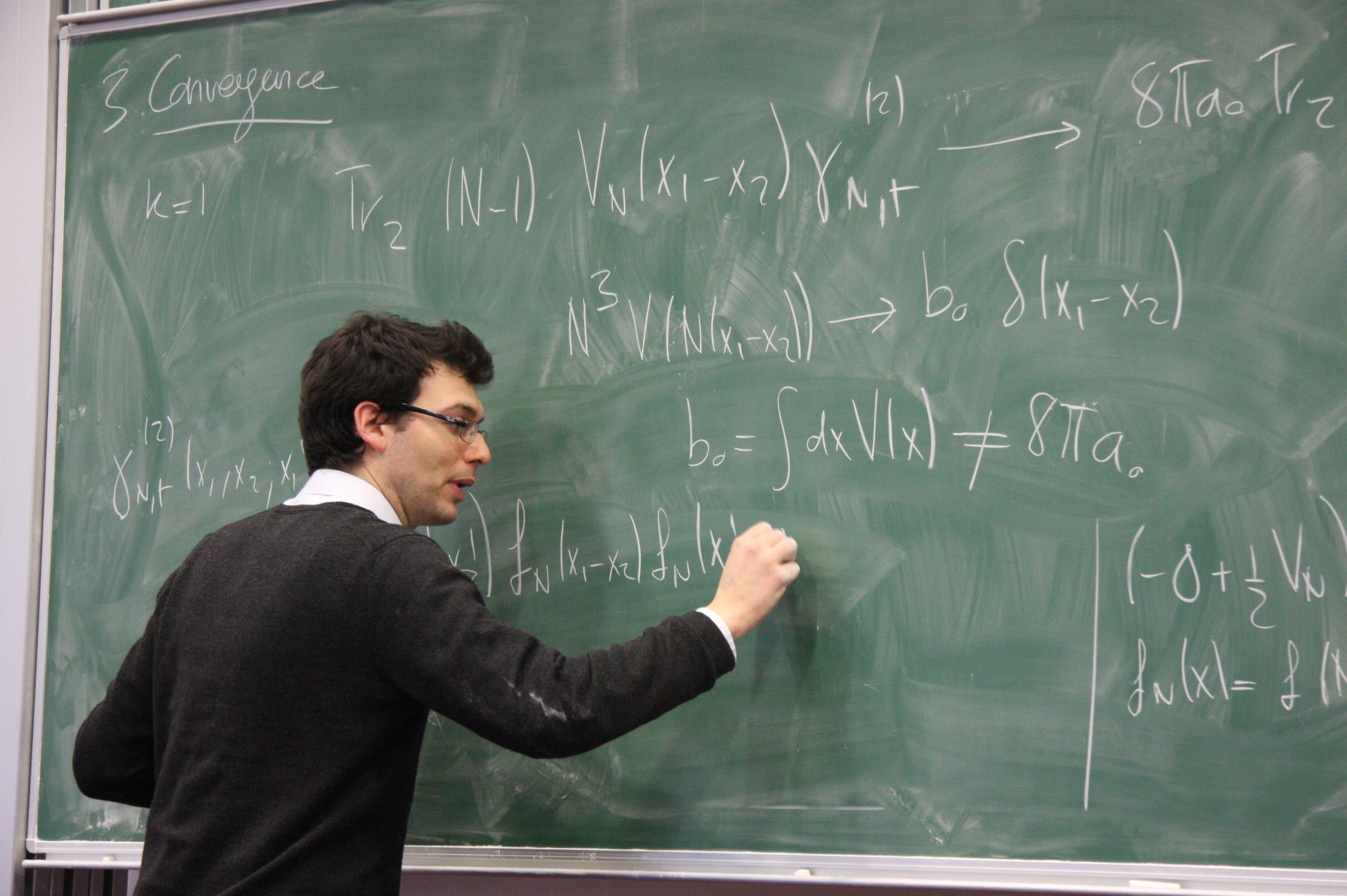Warwick Statistical Mechanics Seminar
in the Department of Mathematics
 |
This term, all seminars take place Thursdays at 2pm, room MS.04 (Zeeman Building), unless indicated otherwise. |
 Benjamin Schlein, 29.01.2009 |
| 10.01.2013 | Roland Bauerschmidt (UBC Vancouver) Finite range decomposition of Gaussian fields I will introduce a class of models of self-interacting random polymers and mention an approach to its study as a perturbation of a generalization of a free field. I will then show a simple new method to decompose free fields into sums of independent Gaussian fields with spatially localized correlations. The method uses the finite propagation speed of the wave equation and related properties of Chebyshev polynomials. |
| 17.01.2013 | Michalis Loulakis (Athens) Large scale dynamics of condensation in the zero-range process We characterize the dynamics of the condensate in the zero-range process in the thermodynamic limit for a fixed supercritical particle density, extending recent results on fixed finite lattices. In one dimension with periodic boundary conditions this leads to a Levy-type process with distance dependent jump rates, and in higher dimensions to a uniform jump process on the torus. This is joint work with Ines Armendariz and Stefan Grosskinsky. |
| 24.01.2013 | Vassili Kolokoltsov (University of Warwick) On Bose-Einstein condensation in statistial physics, economics and number theory I will discuss some links between statistial physics, economics and number theory turning around the notions of condensation and of fractional dimension. |
| 31.01.2013 | Martin Hairer (University of Warwick) Dynamics near criticality Heuristically, one can give arguments why the fluctuations of classical models of statistical mechanics near criticality are typically expected to be described by stochastic PDEs of a certain type. Unfortunately, in most examples of interest, these equations seem to make no sense whatsoever due to the appearance of infinities or of terms that are simply ill-posed. I will give an overview of a new theory that allows to treat such equations in a unified way, which in turn leads to a number of natural conjectures. One interesting byproduct of the theory is a new (and rigorous) interpretation of "renormalisation group techniques" in this context. |
| 07.02.2013 | Martin Hairer (University of Warwick) Regularity structures In this talk, I will introduce the mathematical theory behind statements of well-posedness for a large class of singular stochastic PDEs. The main novel idea involves a complete rethinking of the notion of "Taylor expansion" at a point for a function or even a distribution. The resulting structure is useful for encoding "recipes" allowing to multiply distributions that could not normally be multiplied. Furthermore, the structure comes with a natural "renormalisation group" allowing to create such recipes in a number of concrete instances. |
| 14.02.2013 | |
| 21.02.2013 | |
| 28.02.2013 | |
| 07.03.2013 | |
| 14.03.2013 | Volker Betz (Darmstadt / Warwick) The beauty of planar random permutations Planar spatial random permutations seem to have many links to other popular phenomena in statistical mechanics, such as mean curvature motion, random stirring models, and possibly even critical interfaces and SLE. I will show numerical evidence supporting these claims, and discuss some special cases where the connection is more evident. |